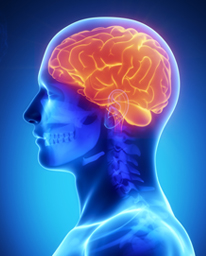
Sleep and anesthesia are distinct brain states that share a common phenotype - unconsciousness. Although the importance of sleep to cognitive tasks is well-established, we still lack an understanding as to why this concentrated quiescence is so necessary for optimal brain health and function. If the restorative properties of natural sleep can be mimicked, pharmacologic sleep or anesthesia could potentially be used therapeutically for cognitive problems. Intraoperative electroencephalographic and electromyographic (EEG/EMG) recordings reveal that some characteristic features of natural sleep are present during surgical anesthesia. Why then is sleep restorative and fundamental to cognitive processes while anesthesia disrupts our cognitive health?
Scientists have begun to unravel specific sequences of regional activation/inactivation of the brain that characterize "waking up" from natural sleep. Unfortunately, much less is known about recovery from anesthesia. Surgical anesthesia represents an enormous opportunity for data collection; the CDC estimates that 48 million inpatient surgeries were performed in the US last year. Statistically speaking, in 2011, nearly one in seven Americans had their consciousness manipulated by a trained anesthesia provider working in a hospital. Despite the widespread availability and use of EEG-based monitors designed to measure depth of anesthesia, the opportunity to collect and analyze this source of focused data on brain state transitions has gone unrecognized.
Because of the diversity among the anesthetic drug mechanisms and variability of post-operative stimulation the re-establishment of a conscious baseline contains a rich data set to be mined for the most salient features involved in cognition. Unfortunately, clinical anesthesiologists have yet to develop a formal taxonomy that describes characteristic stages in the emergence process. Through this international, collaborative, multi-site effort we can capitalize on routine anesthesia as a tool to explore the brain's ability to transition from oblivion to cognition.
The ACCESS Group is supported by a JSMF collaborative research grant awarded to Emory University.
The lead Principal Investigator is Paul Garcia, MD, PhD. Click here to access Dr. Garcia's laboratory web page.